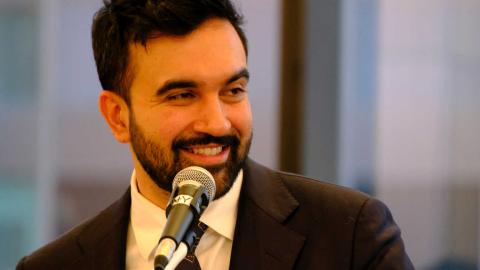The Fourth Branch: 'Shadow' Gov't Running the US?
WASHINGTON -- If there's one thing the Founding Fathers cared about, it was liberty. And some constitutional experts say the last thing they would've wanted was an unelected bureaucracy that could steal your property, your rights, and even your freedom.
But conservatives say the federal bureaucratic state has become so huge that it's now a de facto fourth, and perhaps the most powerful, branch of government.
Richard Kelsey, assistant dean of George Mason Law School, says the Founding Fathers were clear and deliberate about what they'd allow constitutionally.
"They took a lot of time trying to figure out how to get this right. Remember, they had the Articles of Confederation first -- didn't work. So we got together, had a constitutional convention, and we spent a lot of time trying to figure out, 'How do we make this delicate balance of power?'" Kelsey told CBN News.
The Founders decided only the politicians in Congress, those closest to and most easily held accountable by the voters, could make the laws that would rein over, and even threaten, those voters.
"They're supposed to make the laws, propose the laws, be answerable to the people, and the president is not a lawmaker," Kelsey said. "His job is to either say 'no to this law' or 'yes to this law.'
But the unceasing, cancerous growth of the executive branch's bureaucratic agencies has upset this careful balance and made unelected bureaucrats super-powerful.
"They're like a fourth branch of government now, and they are unaccountable," Hans von Spakovsky, a senior legal fellow at the Heritage Foundation, told CBN News.
"They are unanswerable to the voters," he added. "And they can get away with just about anything they want without any consequences."
That's allowed modern presidents to basically take the law into their own hands, and President Barack Obama has made this his forte.
"What he is doing now is he's saying, 'Hey, Congress isn't working. It's not doing what I want. I'll go around Congress.' Nothing allows him to do that," Kelsey charged.
"It's not even being hidden anymore," he said. "The president has come right out and said, 'If the Congress won't act, I will act.' And he's doing it through these bureaucracies."
Now those bureaucracies literally wield life-and-death power over people.
"They are issuing regulations with criminal penalties," von Spakovsky noted. "That's something that only Congress should be able to do. And yet these unelected bureaucrats have the ability now to declare that certain actions will potentially land you in jail. That's how powerful they've become."
In many cases, you don't even have to know you were guilty of disobeying these regulations, which are now basically a new type of law, to be penalized.
"The famous saying is 'ignorance of the law is no defense.' But that's before we started making hundreds of thousands of laws every year," Kelsey explained.
"In fact, lawmakers are ignorant of the law. If you remember from the Affordable Care Act, a.k.a., Obamacare, they said, 'We have to pass it before we know what's in it,'" he said.
And even though Republicans have begun talking about reining in some of the regulatory agencies, critics warn the power of the bureaucrats has been growing for years and Capitol Hill hasn't stopped them.
"Congress over the years has delegated too much of its power to all of these administrative agencies," von Spakovsky said.
Kelsey warned, "So now you have essentially a shadow government in these federal agencies that is running our country, that is determining how the IRS enforces its tax regulations, how the EPA affects your land and your property and your business."
"We are empowering this huge federal government that can restrict our liberties, restrict our freedom, restrict our economic opportunities in this country," von Spakovsky said. "And it's almost impossible to fight back against these agencies."



